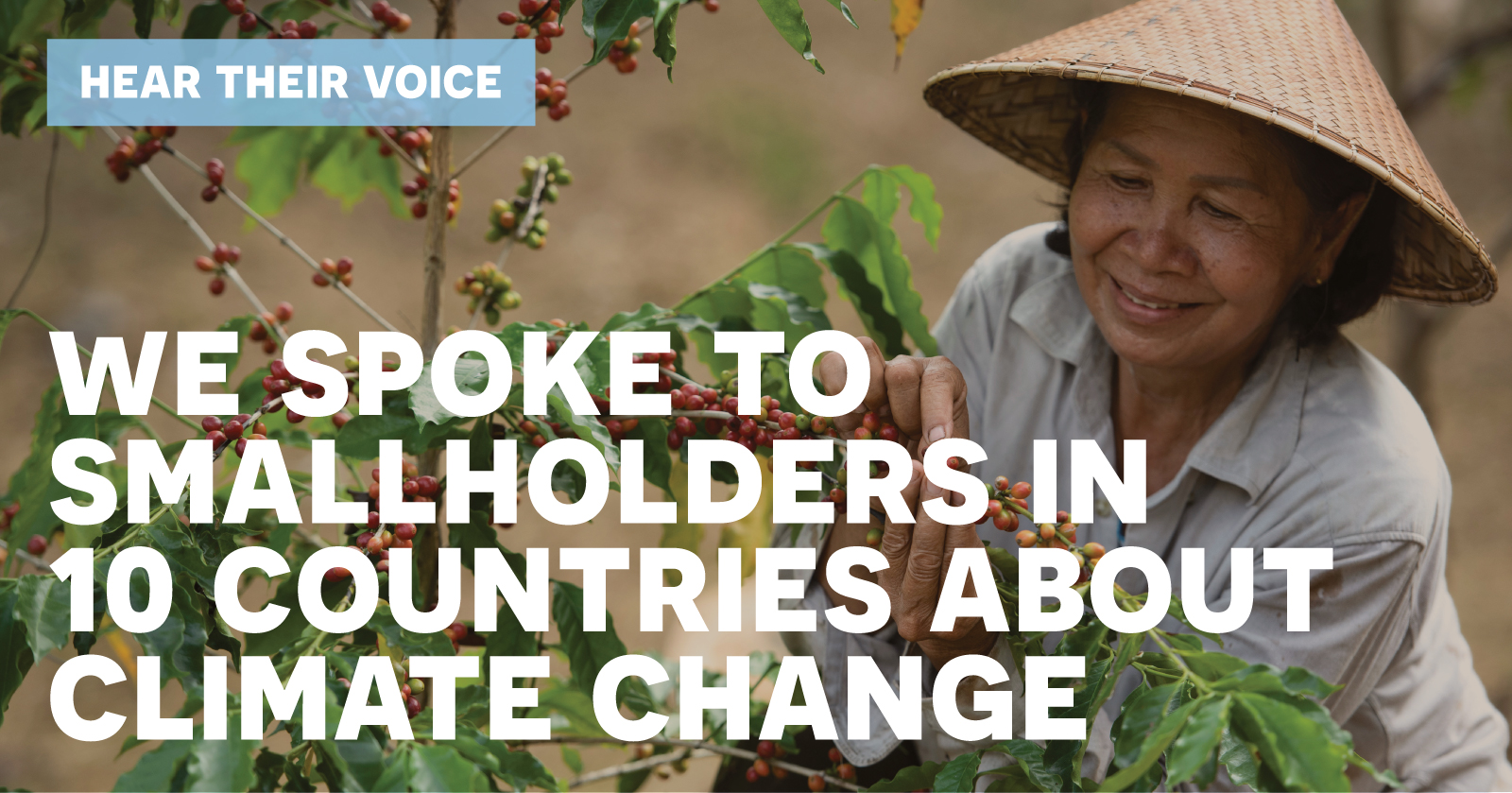The report’s findings center smallholder and indigenous farmers in the Global South as active partners in efforts to address the impacts of a changing climate.
NAIROBI, KENYA, December 6, 2023 /EINPresswire.com/ —
A new report by the Climate Action for Smallholders Coalition (CASH Coalition), informed by a survey of over 1600 smallholder farmers working with member organizations in ten African, Asian, and Latin American countries, reframes smallholder and indigenous land stewards as recognizing the realities of climate change; seeing its impacts; being concerned about declining yields and a degraded natural resource endowment; cognizant of their essential role and wanting to act to adapt to and mitigate climate change.
Communities in the Global South are often perceived as passive victims of the North’s development to be pushed further into poverty by climate change. In this scenario, smallholder and forest communities lack agency and resources to take action except as climate refugees. This narrative perpetuates a worldview in which farmers and forest communities are grateful beneficiaries of Northern actions.
The findings of The CASH Coalition’s survey, published as a Farmer Voice Report, support a new message:
Smallholder farmers and forest communities are intimately connected to their lands. They are primary caretakers of the earth’s precious soil, water, and forest resources. They are concerned, willing, and ready to take action.
Key Findings:
- Almost nine in ten farmers (87%) surveyed reported concern about environmental changes, and more than half (56%) reported significant concern.
- Among farmers surveyed, 83% reported experiencing at least one extreme weather event on their farm in the last five years, and two-thirds in the past year.
- Farmers recognize changes in the quality of their resource endowment: 54% reported diminishing soil quality, and 57% reported observing fewer beneficial insects and earthworms.
- Over seven in ten farmers (72%) surveyed think they have an important role to play in solving climate change and addressing its impacts.
- Eighty-four percent of farmers surveyed answered affirmatively they were aware of regenerative practices, and of these, 87% indicated already activating this knowledge; 98% indicated their willingness to use additional practices to contribute to mitigation efforts.
These findings center smallholder and indigenous farmers in the Global South as active partners in efforts to address the impacts of a changing climate.
The report highlights four areas where support to communities can catalyze climate solutions:
- Enhanced knowledge and training to improve soil preservation and crop resilience.
- Farmers recognize that addressing climate change individually is less effective, favoring communal practices for better results and shared resource preservation.
- Farmers recognize the importance of their agency for addressing climate change but stress the need for external support to finance critical infrastructure like irrigation and storage systems.
- Improved market access and pricing are crucial for investing in climate-resilient inputs and technologies, increasing farmer income, and enabling investments in training, technology, and labor by farmers and communities.
Smallholder farmers produce the majority of food in the Global South, steward a quarter of global agricultural land, and are uniquely positioned to advance solutions to address biodiversity loss, poverty, food security, and development. The actions of 500 million smallholder households – home to almost one in four humans – will be critical to achieving course-correcting transformations to keep average temperatures as close as possible to 1.5’C above pre-industrial levels and achieve the goals of the Paris Agreement.
Keshinee Shah, Director, Climate Policy at CAP-A, a member of the CASH Coalition, observed, “This is an opportunity we cannot afford to miss. Smallholder farmers recognize themselves as a frontline of defense against climate change. Transforming their agency into action, at scale, is possible with access to technical support and equitable access to catalytic financing and innovation.”
“As a CASH Coalition member, we are co-creating climate mitigating solutions with smallholder farmers that also improve soils, yields, and farm profits. Making significant resource commitments at COP28 to partner with these frontline actors can boost climate action at scale, and recognize smallholder farmers for their important role in protecting our fragile ecosystems.” Debbie Aung Din, Co-founder, Proximity Designs.
The Climate Action for Smallholders Coalition (CASH Coalition) is a collaborative initiative comprised of thirteen organizations working with smallholder farmers, indigenous communities, and other local populations in the Global South. We work directly with 9 million land managers stewarding 16 million hectares of land. The CASH Coalition aims to make regenerative agriculture and climate solutions profitable for smallholders and strengthen farmers’ participation in climate funding markets.
Jonathan Faull
The CASH Coalition
email us here
Visit us on social media:
LinkedIn
